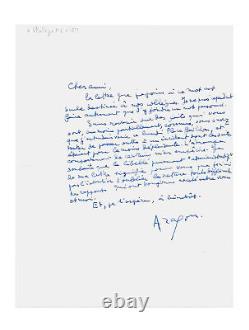
- Homepage
- Author
- Alfred Bruneau (3)
- Anatole France (3)
- Auguste Maquet (3)
- Beydts (louis) (4)
- Camille Mauclair (3)
- Charles Monselet (3)
- Chateaubriand (5)
- Ernest Daudet (3)
- Henri Barbusse (3)
- Jean Couty (3)
- Jean-léon Gérôme (5)
- Louise Read (4)
- Marcel Proust (5)
- Paul Chabas (4)
- Paul Meurice (3)
- Proust (3)
- Roger Martin Du Gard (4)
- Salomon Reinach (3)
- Sully Prudhomme (7)
- Violette Leduc (4)
- Other (3992)
- Binding
- Condition
- Epoque
- Années 20 (6)
- Années 30 (8)
- Années 50 (7)
- Années 60 (15)
- Années 70 (15)
- Années Folles (34)
- Après-guerre (48)
- Belle Epoque (109)
- Entre-deux-guerres (8)
- Monarchie De Juillet (10)
- Premier Empire (36)
- Restauration (23)
- Révolution (26)
- Second Empire (85)
- Xixe (6)
- Xixe Siècle (80)
- Xixème Siècle (16)
- Xviiième Siècle (19)
- Xviième Et Avant (53)
- Xxe Siècle (41)
- Other (3422)
- Era
- 18th Century (11)
- 1900 To 1960 (60)
- 1930s (4)
- 1960s (5)
- 1970s (7)
- 19th (5)
- 19th Century (48)
- 20th Century (15)
- Beautiful Era (12)
- Belle Epoque (49)
- First Empire (8)
- Nineteenth (19)
- Nineteenth Century (11)
- Post-war (21)
- Restoration (17)
- Revolution (4)
- Roaring Twenties (28)
- Second Empire (21)
- Second World War (5)
- World War Ii (9)
- Other (3708)
- Language
Louis ARAGON / Signed Autograph Letter / Resignation from the Goncourt Academy 1968



Signed autograph letter "Aragon" [to Philippe Hériat, secretary of the Goncourt Academy] S. D [Paris, November 18, 1968], 1 p.
In-4° Perfect condition except for a small tear in the upper margin Annotation in pencil in the upper left margin. A scathing letter that accompanied his dramatic resignation from the Goncourt Academy. The letter that I am enclosing with this note is intended solely for our colleagues. However, I cannot help but add a personal note. Without going back over the facts that are, at least partially, known to you, you know that I intended to come to Place Gaillon this Monday and try to overlook an incident whose consequences were, to say the least, unpleasant.
The strange behavior of some prevents me from doing so. I hope that the purely "administrative" wording of my letter indicates to you that I have no intention of forgetting the very different nature of the relationship that has always existed between you and me.
And, I hope, see you soon. Aragon was elected to the Goncourt Academy on December 15, 1967. On that occasion, he wrote: "As I am a staunch supporter of the novel, I find it only natural to join forces with those whose lives depend on the life of the novel." The idyll lasted less than a year. On November 18, 1968, he announced his resignation. The "good comrades" of the previous year had just been accused of "cannibalism" in a letter from the poet-novelist, which he first made public on the airwaves of Europe 1, then in the newspaper he had been directing since 1953, Les Lettres françaises: "I do not wish to associate myself with the kind of cannibalism that reigns among some of our colleagues." Aragon was also accused, in addition to being the target of a press campaign against him, of maneuvering and using his influence to ensure that Clavel would win the prize for the year 1968, to the detriment of François Nourissier. The press campaign was initiated by the young Bernard Pivot, who made it his mission to reveal the "little literary manipulation" that the winner of the Grand Prize of the City of Paris had allegedly been a victim of.He also revealed the voting intentions of others. Aragon suspected that one of the Academy members was behind this leak, which ultimately bore fruit in a harmful way. It is now known that Aragon's influence could only have been limited, as the jury consisted of 26 members, many of whom were supporters of de Gaulle. Aragon's "open" letter, sent under the same cover as ours, is now preserved in the Municipal Archives of Nancy.

